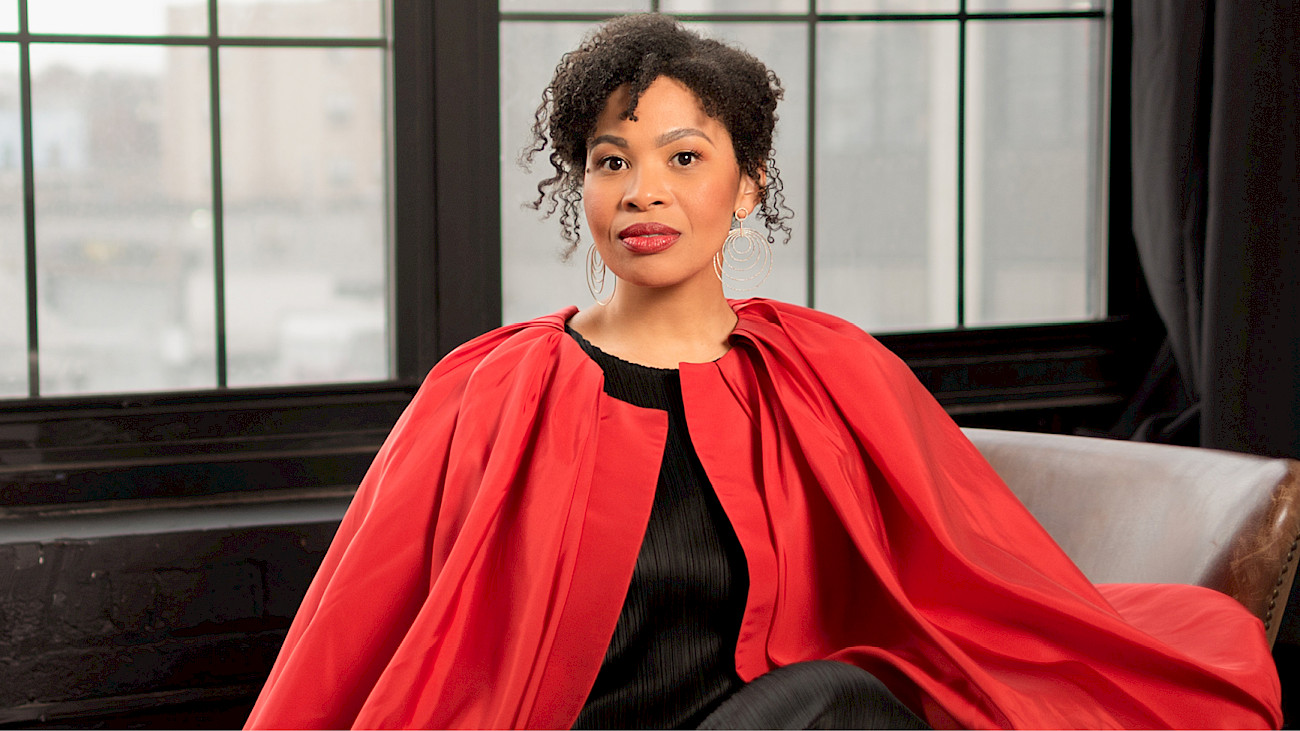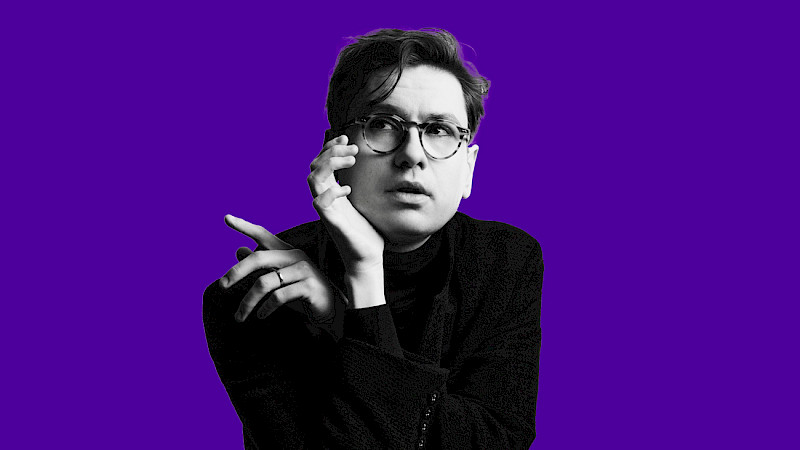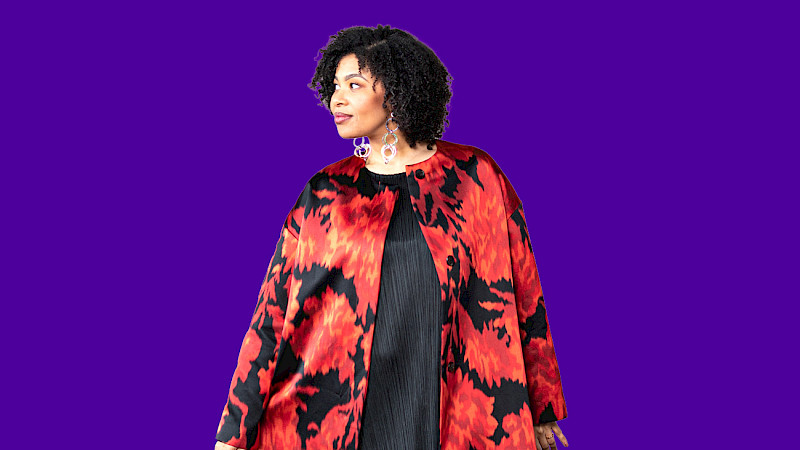
Fascination, Fainting, Favourites
Golda Schultz only decided to become an opera singer in her mid-twenties. She then sang her way to the top internationally.
Striking outfits, a charming smile and incredible charisma - Golda Schultz inspires as soon as she enters a room. As soon as she starts singing, it's all over: The soprano truly convinces on all levels. When you read or watch interviews with her, however, it becomes clear that there is much more to her than "just" being an outstanding singer. Her path in the world of classical music, which she has been treading for around twenty years now, has been and continues to be exciting.
"Completely immersed"
Golda Schultz was born in Cape Town; when she was six years old, her family moved to Bophuthatswana. Her father was a mathematician, her mother a nurse. As a child she learnt to play the violin and piano. She began to study journalism in Grahamstown and took her first singing lessons at the age of 19. It was a key experience that made her realise that she would become a singer. In an article she wrote herself, she describes it as follows: "I remember a very specific moment: the entire floor of my student room was covered with scores; I was sitting somewhere in between and actually wanted to work on a final project for my journalism degree. But instead of grappling with newspaper articles and media theory texts, I immersed myself in the world of opera, trying to better understand its unique appeal - and thinking about how I could share my fascination with others. I was completely immersed. Even though it took a while before I finally made my way as a singer, it was at that moment that I slowly began to realise what music meant to me."
Shock therapy for stage fright
Golda Schultz's mother tongues are Afrikaans and English. However, she began her career at the opera studio of the Bavarian State Opera. She found having to sing in German terrifying. She still struggles with stage fright to this day. Recently, in a Spotify podcast on the subject, she used the humorous term "fainting-goat syndrome" - named after the American breed of domestic goat that goes into a state of paralysis when in danger. There was and is no sign of this fear on stage. However, Golda Schultz often fainted after a performance at the beginning of her career.
South Africa: Opera, apartheid, choirs
The television was on in the living room of the Yende family in the small South African town of Piet Retief, a British Airways advert flickered across the screen, and little Pretty pricked up her ears: That background music, what was that? The next day, she asked her music teacher the question. "That's opera," was his answer, and: "You can learn it."
Soprano Pretty Yende, who now sings on all the major stages, was not the only one to learn it. Soprano Pumeza Matshikiza, tenor Sunnyboy Dladla and our focus artist Golda Schultz also studied singing in South Africa - and then made the leap into the international opera world.
This is not a matter of course. Until 1994, until the end of racial segregation and the election of Nelson Mandela as president, opera was a white privilege in South Africa. Black people were not allowed in most theatres, neither as employees nor in the audience, and certainly not on stage or in the orchestra. It is hardly surprising that after the end of apartheid, opera houses were criticised as places of oppression.
But opera has survived, with new protagonists and new concepts. In the meantime, however, it has also faced new difficulties: As plentiful as the young talent is that is being trained at four music academies in the country, performance opportunities are rare. Many theatres lack funding and some have had to close, most recently the Gauteng Opera in Johannesburg. The Cape Town Opera in Cape Town is now the only company that operates all year round.
At the centre of this operation is the choir, which sings the opera repertoire from Monteverdi's "Orfeo" to Strauss' "Salome" - and in concerts expands the classical boundaries in the direction of gospel, jazz or spirituals. Tours take him to the former townships, but also to Europe, South America and the USA. in 2013, it was honoured as "Chorus of the Year" at the International Opera Awards.
A second choir should also be mentioned here: the a cappella formation Ladysmith Black Mambazo. It caused a sensation in the 1960s with traditional Zulu songs, made its international breakthrough in 1986 thanks to Paul Simon's album "Graceland" and accompanied Nelson Mandela to Oslo in 1993 to receive the Nobel Peace Prize. To this day, the group is just as widely travelled as its opera counterpart: both are ambassadors for a rich culture.
Those days are now over. Her solution sounds drastic: "shock therapy" was what a teacher recommended to her. "That was in 2002, quite a while ago. I had a performance, fainted and when I woke up, I was called to the Head of the Department Office. My teacher said, 'That was strange. Has that ever happened before? And I said, 'Yes. I'm very sorry, I think I'm going to have to drop out of this course. Because obviously I'm not a performer He said, 'Oh no. I just called you here to tell you that you're too talented. So you need to pull yourself together. I'll see you next week where you're going to perform again. You'll be fine. Two things can happen: Either you die of stage fright or you get rid of it. It's your choice.' I hated it, but I did it."
Music as a universal language
Golda Schultz now sings on concert and opera stages around the world, dispelling many clichés in the process. This is not always easy, as the soprano clarifies in an interview: "As a person of colour, you will always have a hard time in the classical music scene. It will always be interesting and challenging. Many people assume that we have no connection to classical music, no cultural or historical context, but the essential thing about music is that it is a universal language. Just like maths is universal." She is also critical when asked what it is like to work as a woman in the classical music world. "Being a woman in a male-dominated world: it's complicated, sometimes exhausting, sometimes beautiful." With her debut album "This be her Verse", she emphasised precisely this statement musically - with 18 songs by five female composers.
"Mozart, you drive me crazy!"
Golda Schultz loves pop music. One of her favourite bands is Abba. As a teenager, she also enjoyed listening to albums by Christina Aguilera and Britney Spears. One of her favourite songs by the latter is "You drive me crazy". It was this song that inspired the title of her new album "Mozart, you drive me crazy!". But what is it about Mozart that makes her so crazy? "When you listen to Mozart, the music always sounds so simple. And creates catchy tunes. But when you have to rehearse the music, you realise how difficult it is. And that's where the craziness comes in. Because I want so much to show the light and simple side of Mozart, but I don't always feel comfortable. You have to work very carefully when you're learning the music in order to gain freedom. This then gives you the chance to reach heaven. That's the special thing about Mozart: you feel like you're in heaven, but your feet are on the ground. That's why Mozart drives me crazy. I would love to be as heavenly as him and his music, but I'm just me."
The end as a beginning
Golda Schultz will not be singing any Mozart works at our concerts. She will showcase her chamber music skills in a performance with the musicians of the Tonhalle Orchestra Zurich with a palette of songs ranging from Clara Schumann, who is still being discovered, to her contemporary Johannes Brahms and the music of rock legend Elvis Costello. A typical programme for the soprano, demonstrating the stylistic and emotional range with which she impresses audiences around the world.
She makes her debut with the Tonhalle Orchestra Zurich with the "Four Last Songs" by her favourite composer Richard Strauss. It is a work that she sees as a "highlight", as "something you should strive for as a soprano" and that develops with you: "Once you start singing them, they are songs that stay with you for a long time. The way you sing them at the beginning won't be the same as the way you sing them at the end." Her favourite is the song "Beim Schlafengehen ": it is perfect for her, "because I know that this is Strauss' meditation on a life well lived. I know that he wrote it at the end of his life because he knew that there were more things behind him than in front of him. And that's okay. Endings are a part of the whole. Endings are the moment before a new beginning."





